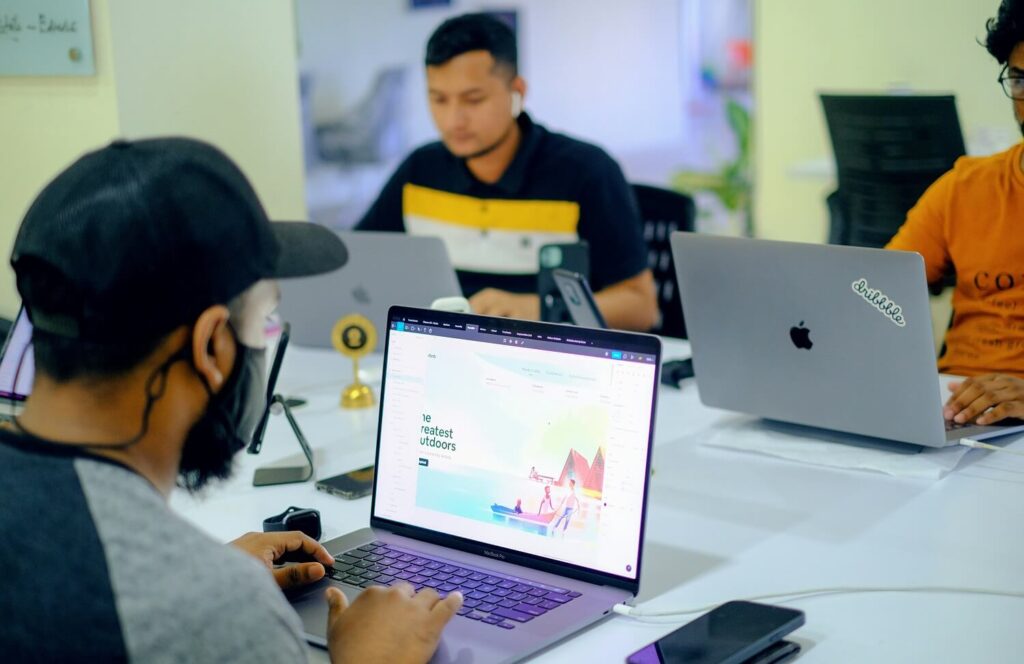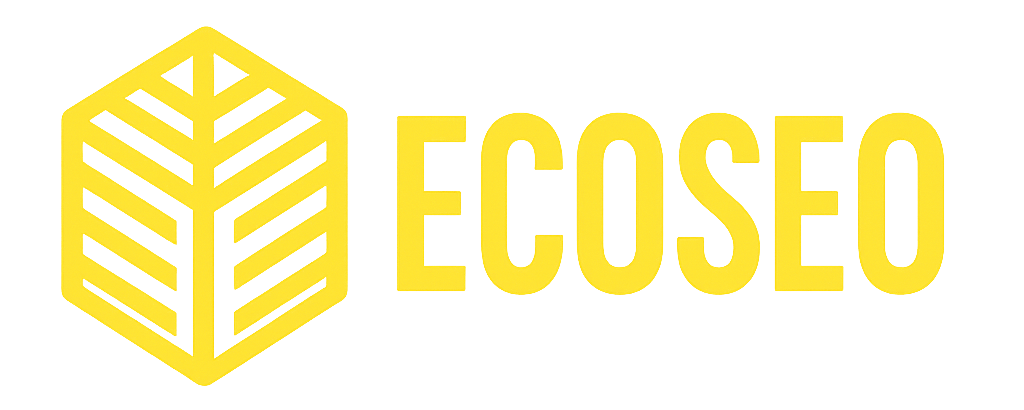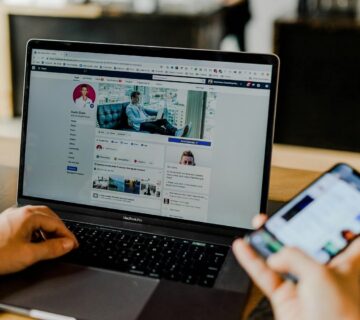Not ranking on the first page for your business? You are potentially losing out on thousands of local customers. The key to success is local SEO. Local SEO is the most efficient and direct way to reach nearby customers who are actively looking for your business.
Optimizing your Google Business Profile (GBP) and acquiring a few high-quality local backlinks can be a gamechanger. Driving quality traffic to your website is important but the key is to target people who are actively searching for what you’re offering. If you can increase visibility in local search, you’re bound to drive more potential customers to your doorstep. The more customers discover your profile, the better.
In this ultimate guide, you will find proven strategies that will help you rank for local searches. Ranging from Google Business Profile optimizations to earning quality local backlinks.
You will also find a list of SEO tools and real-time local rankings, along with some frequently asked questions. So let’s not get into any further delay and talk about how to dominate local search.

What is Local SEO and Why Is It Important?
Local SEO, in a nutshell, is about optimizing your business for visibility to the people nearby when they search Google, Bing, or another search engine. In other words, if your business relies on the local audience in any way, local SEO is something you can’t skip.
Bingo. I get it. But why does it even matter? I mean, why do you even need it? Let me explain.
Here’s why:
Improves local visibility
It’s not as obvious as it seems. Data from Aioseo shows that a whopping 46% of all Google searches are local intent. (In other words, they are looking for something or someone nearby.) And here’s another one mentioned that around 18% of local searches on a mobile phone result in an immediate purchase (within 24 hours).
This means almost half of all Google searches are conducted by people who are actively looking for a local product or service, just like yours. And if your business isn’t popping up in search results, those people are going to someone else’s business.
Drives foot traffic and conversions
Did you know that according to Sagepixel, 76% of local searches result in an in-person visit to a business within 24 hours? And around 28% of all local search users convert to paying customers.
In other words, when your business appears on Google Search, it’s not just a pixelated icon on a screen. It’s an actual, breathing person walking into your store with money in their hands. If you’re not optimized for local search, you’re effectively missing out on a lot of potential in-store customers.
Gets you one step ahead of the competition
Claiming your Google Business Profile, getting legit reviews, and optimizing your content for local search may seem like a chore, but here’s why it’s so important: it all increases your chances of ranking on the Local 3-Pack (the top 3 spots in local search results) which receive up to 70% of all local search traffic. In other words, ranking on the Local 3-Pack can significantly increase your visibility and, in turn, your chances of being the first name people reach for.
Local SEO is not some “marketing buzzword.” It’s a way of being found by the right people, at the right time, and getting them to buy your product or service. If you own a local business and don’t have local SEO, you’re not taking your business to the next level.

Builds Trust & Credibility
Online reviews serve as social proof that people trust your business. Google and Bing like to see that, too. Businesses with higher ratings and positive reviews and engagement tend to rank better in local search results, and there’s a good reason for that.
Ask yourself a question for a second: if you had a choice between a business that had zero reviews and one that had a hundred positive reviews, which would you trust? That’s right. Positive reviews not only look good on the surface but they also give your visitors confidence that you are who you say you are and that you stand behind your claims.
When you ask for reviews, respond to them in a thoughtful way, and prove that you care, you earn credibility. In fact, a strong online reputation can speak volumes and subtly but significantly sway customers in your favor instead of the competition.
Mobile Searches Lead to Instant Decisions
Here’s a fact that will blow your mind: 82% of mobile users are doing “near me” searches, and 90% of them make a purchase within 24 hours. That’s not just visitors or traffic to your website or social media accounts. That’s action. That’s real people that are not just browsing, but are in the market for making a purchase.
Local SEO helps you be there when those moments arise. Imagine a hungry customer looking for some coffee. They pull out their phone, type in your category, and you show up. Your coffee shop is not just visible to them. It’s convenient, relevant, and ready to convert that searcher into a new sale. Timing is the crucial factor in local SEO. You need to be there at the right time to capture customers. Otherwise, you could miss out on the opportunity to gain a new loyal customer for life.
Local SEO Beats Paid Advertising Often
Unlike paid advertising, where all the progress stops the second you turn off the ad spend, local SEO efforts create something long-lasting. Optimizing your GMB profile, updating your content, managing reviews, and accurate citations will give you ongoing visibility. You are not just buying clicks or impressions with local SEO.
You are building trust and creating a presence that will continue to pay off long after you have stopped working on it. In other words, local SEO is, in most cases, far more cost-effective in the long term than throwing money at ads that will disappear the second the campaign stops.
Voice Search Is Transforming the Way People Search
Voice search has arrived. In fact, over 58% of people now use it to find local businesses. If you are not thinking about how to optimize your business for conversational queries such as, “Where’s the best pizza place near me?” then you are missing out on a large market share.
Optimizing your business for voice search is not just following the latest tech trend. It is about ensuring your business is discoverable in the way people search and talk in this day and age.
Read about – How to optimise for Voice Search?

Earn local backlinks to build your local authority
Obtaining backlinks from local, relevant sources is beneficial in more ways than one. Local backlinks that Google sees as trustworthy (i.e. local news and press outlets, directories and similar industry blogs) will not only boost your local rankings but will also increase your overall domain authority over the long term.
This also means, more importantly, that when those backlinks send organic, high-intent customers in your direction (that is, those specifically searching for your services in your local area), they’re more likely to find, trust, and actually visit your business.
If you want to make a long-term impact for your local business SEO, these relationships are important. Nurturing them is a low-key way to edge out the competition in your area.
Pay attention to Social Media
Believe it or not, a business’s social media presence can also affect local search. Your activity on Facebook, Instagram, LinkedIn and other social media platforms are important factors that Google takes into account when ranking your business locally.
The reason is simple – engagement with your community through social media increases brand recognition, and the more well-known your business is, the more likely Google is to place your website on relevant local search results. In short, engaging in social media is a powerful tool for increasing your chances of being seen.
SEO is good for competition
One of the first and most important reasons to get on board with SEO in general, and local SEO in particular is that if you don’t work on it, your competitors will.
Not prioritizing local SEO means ceding potential customers who live on the other side of town to the competition, who is also likely to appear more prominently in the search results. Staying ahead of local trends and paying attention to local SEO means being able to hold your ground in your industry and be seen in your area.

Local SEO vs. Traditional SEO: What’s the Difference?
The distinction between local and traditional SEO is that the former is more targeted while the latter is more extensive. If local SEO is a visit to a physical address, the traditional SEO is the same process, but on a much larger scale.
Both of them contribute to your website ranking on a search engine, but they differ in terms of targeted audience and have different functionalities.
1. Audience
Local SEO as a service is used for local-based businesses. If you search for “the best electronics shop in Cape Town,” the local SEO practices will help the electronics store’s ranking, and their physical address will pop on a search engine. The searcher is looking for an address within the radius of their location, and they are most likely willing to pay a visit the same day.
The traditional SEO is more general as your audience can be anywhere around the world. The customer searching “how to make homemade coffee” has no specific location in mind. A person would have no need to search nearby addresses. They are probably looking for an answer, instructions, support, or products that can be delivered, so the information can be accessed digitally from anywhere. A local SEO targets local people, while traditional SEO targets a general audience.
2. Search Intent
Customers that use local searches are looking for a local address. They want to find a local supermarket, buy things or services, and visit the location physically. A person using Google is most likely to contact the establishment either by calling or walking there.
With a traditional search, the user has a general search intent or is looking for some digital services. They are searching for an article or blog, for example, searching for an online course or trying to purchase e-commerce products. In the case of the traditional SEO, there is no specific location to visit physically.
3. Ranking Factors
There are certain local signals that local SEO makes use of to boost its rankings. An optimised Google Business Profile, proper local citations, reviews, local keywords, and ranking on the map are the major factors for local search. A prime spot in the Google Local 3-Pack, which is the Local Map Pack of the first three places that come up on Google maps, is a deciding factor for local businesses.
The ranking factors for traditional SEO are a little different. Content quality, backlinks, site speed, and authority and relevance are the main factors that matter the most for traditional SEO.

4. Keywords
Local SEO, as you may have guessed, uses geographically specific keywords or phrases. Think “best plumber near me in Cape Town” or “how to open a bottle store in Cape Town.” These are clear signals to the search engine as to your location.
On the other hand, traditional SEO is all about generic terms and phrases such as “best plumbing tips” or “how to fix a car engine.” In this case, geography doesn’t play a role. You’re not interested in reaching people in Cape Town, in this example. You want anyone with an interest in plumbing.
5. Link-Building Strategy
Links from other sites and directories are a major ranking factor. But local links are the key to a successful local SEO campaign. Blogs, directories and even websites based in Cape Town will help your local SEO rankings. That’s because local links to local websites will reinforce to your users that you are, in fact, based in the area.
With traditional SEO, your focus is less on locality. You’re after links from the most well-regarded websites in your industry or subject matter. It could be authority sites, news sites or even a website that specialises in what you do. Links from Cape Town-based websites are irrelevant in the traditional SEO strategy.
6. Mobile & Voice Search Impact
Mobile searches and voice queries have changed the SEO landscape. Local SEO has particularly benefited from this, as users on the go are rarely typing long search phrases. If they want to know “Where is the nearest coffee shop in Cape Town?” they ask, rather than type.
Local SEO is also king here as local results are incredibly important. They must be delivered in milliseconds. It also means you need to have a mobile-friendly site. As voice and mobile searches are often on the go, that mobile factor is crucial.
Traditional SEO also needs to prioritise mobile, but again, there’s no need to consider location. However, your website must still be optimised for useability, speed and accessibility.

Which One Should You Focus On – Local SEO or Traditional SEO?
If you’re a local business in Cape Town, such as a restaurant, law firm, dental practice or a repair shop, then the focus should be on Local SEO. It will attract customers within reach. These are your leads who are more likely to visit you or call you than others who are at a farther distance.
If you’re an online business serving national or even global audiences, a blog or an eCommerce website, or a SaaS company, then you should concentrate more on traditional SEO strategies. Proximity in this case does not matter as much as in local SEO. Target audience will come to your business when you sell products or services online.
In case, your business also offers local services apart from selling products online, then a combination of Local SEO and Traditional SEO is what you require. Knowing the difference between the two will help you develop a marketing strategy that can target the right audience at the right time and increase your online visibility.
Here’s how to boost your GMB (Explain + Tips)
1. Optimise Your Google Business Profile (GBP)
One of the first places you need to look to optimise your business for local search is your Google Business Profile (GBP). Your Google profile is your business online storefront, half completed or stale and outdated could be considered as putting up a “we’re not interested” sign before people even walk through your door.
Claim and Verify Your Profile
Claim your listing and follow the verification process. It may be a bit tedious and sometimes a little slow but be patient with the verification process. Your Google Business Profile won’t be viewed as credible unless it is verified through Google.
Complete your Profile
Your business name, address and phone number (NAP) are verified and are accurate and consistent. You have added the website, trading hours, business category and added any additional relevant information. The more information you add the more relevant and in turn, trustable, your profile will appear to both Google and to potential foot traffic.
Add Local Keywords Naturally
Add some relevant local keywords but do this naturally as if you are introducing your business to a new visitor. Don’t stuff your profile description with “Cape Town bakery” 12 times, instead, use a variety of relevant keywords strategically through your description. People like things that are clear and easy to understand not awkward and stilted.
Add Images of your Business
Add images of your storefront, office or workplace, staff, products, or services. A face to your business. The first step to developing trust is putting a face to the name, so add a professional, friendly set of images to your Google Business Profile that represent you, your business and your brand.
Keep Your Profile Updated
Use GBP posts to share any updates, offers or company news. You can think of this as your mini social media feed, it keeps your profile active, more engaging and it signals to Google that your business is alive and kicking.
Respond to Inquiries
Enable messages and reply to questions and inquiries quickly and efficiently. If someone’s in your area and interested, a quick response time is all it takes to convert a passive search into a visit. People like businesses that reply quickly, and it also shows you’re watching and are there to serve.
2. Optimize your website
Your website is the next logical place to focus once you’ve nailed your GMB. Local search is highly dependent on the things you say (and where) on your website.
Include Local Keywords (But not robotically)
- Identify and use the actual terms and phrases your local customers enter into Google. Examples could be “best ice cream in Cape Town” or “dentist in Pretoria”.
- Sprinkle them naturally into your title tags, header tags, meta descriptions, and overall content. A heavy or awkward placement will be obvious and off-putting.
Craft Location Pages (When you operate in multiple locations)
- If you’re in more than one city/town/neighbourhood, it’s generally better to create an individual page for each rather than lumping them together.
- Include unique content for each one, even if the services you provide are identical. Google doesn’t appreciate duplicate content.
Apply Schema Markup
- Local Business Schema can seem a little intimidating, but it’s simply telling Google the relevant attributes of your business.
- This includes your NAP, opening hours, reviews, and what services you provide. It’s not essential for everyone but can be a solid addition.
Ensure your website loads quickly and is responsive
- Most local searches are performed on a mobile device, typically when a user is already on the go. If your website is slow to load, or doesn’t display properly on mobile, you’re going to lose them in a heartbeat.
- Speed is everything. Test out your website’s loading speed with Google PageSpeed Insights. It tells you exactly what’s wrong and gives you pointers on how to fix it.

3. List in local directories & citations
Google depends quite a lot on citations in order to determine if a business is legitimate or not, so it’s well worth putting some work into this area. Simple in theory, but one of those things that people tend to leave until later and then kick themselves for.
Firstly, make sure your NAP (name, address and phone number) are exactly the same across the board. One slightly misspelled word or a long-dead phone number can create more havoc than is necessary.
At the bare minimum you want to be listed on:
- Yelp
- Bing Places
- Apple Maps
- Yellow Pages
- Local Chamber of Commerce
It’s also a good idea to do a quick search for duplicates. Over the years, it’s amazing how many rogue listings appear. Delete anything incorrect or duplicated — the cleaner the data the easier Google has and the more likely it is to work in your favour.
4. Build Local backlinks
Local backlinks are one of those quiet workhorses of local SEO. Sure, you only need a couple, but each one adds a little weight to your authority, and they tend to help you locally.
Fortunately there are some easy (and generally quite friendly) ways of obtaining them:
- Partner with local businesses for shout-outs or features on each other’s websites. Simple, and everyone wins.
- Sponsor local charities, sports teams or community events. Sponsors often get a mention on websites or local news articles, and these can be relatively easy to get.
- Write an article that’s useful for local bloggers, newspapers or industry websites. Guest posts still work, especially if they’re helpful.
- Publish press releases for company announcements but send to local news outlets. Local news outlets are much more likely to pick up on stories with a local angle.
5. Collect & Respond To Reviews
Not many people seem to understand how big an impact reviews have on local rankings. They do. And also, contrary to popular belief, most people have no problem writing one, you just have to prompt them at the right time. A simple message after a positive experience (Google, Yelp, Facebook, and one of those industry-specific review sites I can’t even keep track of) will do.
If it’s a positive review, it’s always good to respond and say thanks. Doesn’t have to be much, but a bit of appreciation never hurt anybody. If it’s negative, things are easier than you’d think.
Remain professional, be helpful, and things usually die down relatively quickly. The one thing you should never do, however, is pay for fake reviews. Google doesn’t take kindly to that, and their penalties aren’t exactly gentle. And once people lose trust in you, it’s an incredibly hard thing to get back.
A pro-tip for this, one that seems obvious but is effective: email or SMS your review requests immediately after someone buys something. The time of purchase is when people are most likely to respond.
6. Utilise Social Media & Local Content Marketing
Social media isn’t as impactful in local SEO, but it’s still not entirely negligible. Engagement signals are a thing, and the more likes, comments, shares your social posts get, the better the general image of your company will be.
Now, a few minor practicalities. For starters, your Facebook, Instagram, and LinkedIn profiles should, in fact, say where you are and what you do. It’s surprising how many businesses miss that. Also, in terms of content, you could do a lot worse than creating local content.
Sharing community wins, customer wins (with permission, of course), or posting something about where your team is from are not only good in terms of community building but can help your content have a more local feel to it as well.
In fact, if you’re lacking content ideas, just start thinking locally:
- Write a blog post about your favourite Cape Town coffee shops or places your employees come from.
- Create a list of local activities or businesses worth checking out.
- Announce local or online events (yes, even smaller ones) on your site and social media pages. People love being included.
Again, it’s not a numbers game, but a subtle reminder that you exist and, more importantly, that you’re a part of the community you’re trying to reach.

7. Use Google Ads & Local Service Ads (LSAs) to See Quicker Results
Need to be found quickly? (And, as I mentioned, if you own a local business, you probably will at some point). You can get that boost pretty much overnight using Google Ads (aka Google AdWords) or Local Service Ads (LSAs).
Okay, it’s not magic, but it does tend to be a bit quicker than organic SEO, provided you set it up correctly.
For some reason, I find that the most effective ads are those that target an extremely narrow search query. These are the exact phrases a customer would type when they’re under stress or time pressure. “Emergency plumber near me,” for example. They won’t convert on general queries like “plumber,” so I make a point of testing my ads to make sure I don’t spend my money that way.
For Local Service Ads, the keyword is not as important as it is for Google Ads, but do double-check you only see in the places where you actually offer services. It’s another one of those annoying settings people tend to overlook – geo-targeting – but it prevents wasted clicks and money.
LSAs are, for all intents and purposes, the “VIP row” on Google. They’re ads on Google, but they appear prominently as a kind of sidebar promotion alongside the organic results, which can provide a nice, noticeable bump to your Business Profile.
And since they charge you by lead rather than by click, they often feel more grounded (pardon the pun), especially for service businesses whose customers often convert by phone.
8. Track & Analyze Everything with Analytics
Okay, boring stuff, but it is the only way to determine if your local SEO is doing anything at all. Tracking and reporting tools are only part of the job, but a few tools make it a lot less painful:
- Google Business Profile Insights shows you how people are interacting with your listing – by phone or web, clicks and more, as well as how often people see your listing. It’s surprisingly illuminating.
- Google Search Console helps you find issues that would otherwise fly under the radar. It will tell you what local keywords you’re showing for, and alert you to any errors that silently damage rankings.
- Google Analytics completes the picture, in particular, showing you where your traffic comes from, and what visitors do on your site.
Bonus: A platform like BrightLocal or Moz Local can save you some time and sanity. They can also help with managing and standardizing your listings, as well as helping you track your rankings without having to monitor 15 different dashboards. I think people are actually relieved when the “manual” novelty wears off and they find it saves them time.
10 Interesting Facts About Local Rankings on Search Engines
- The first, second and third positions in local searches earn the biggest slice of the click pie – an estimated 54.4%, in fact. The data says the masses stop scrolling right there.
- Companies with a 5-star rating get higher local rankings and 25% more clicks. No surprise. When humans, not algorithms, are making decisions, we’re primed to read those star ratings.
- A ‘near me’ search from a smartphone has a 76% chance of a store visit within 24 hours. You’d think someone who bothered to type that was pretty keen to find a place to shop.
- Voice search adoption among over 50% of consumers has been surprisingly normal… because it’s not all that normal yet. We’re not used to talking to our smartphones.
- Shaky NAP (name, address and phone number) citations between directories have quietly been shredding local rankings. Ditto sites that are accidentally listing a shop closed down five years ago. Google isn’t a fan of data mismatches.
- Local backlinks (links from similar local businesses or organizations) are very likely to help you leapfrog those tough-to-crack higher positions. Locals tend to link together more, and Google apparently likes that.
- A Google Business Profile that is fully optimized and regularly updated will usually outperform listings that have been abandoned by wide margins.
- Engaging on Facebook, Instagram, LinkedIn or other social media can help local rankings. Google isn’t transparent about it, but it knows.
- Improved CTRs (click-through-rates) tell Google that searchers are more interested in your business over others, and that generally has a positive effect on rankings over time.
- OK, there it is one more time. A listing that has more clicks on average than its competitors will be rewarded with better rankings by Google. I feel like that’s one of those things that needs repeating more than twice.
- Schema markup for local businesses gives search engines more clarity around what you’re all about, which often results in better exposure.

4 SEO Tools To Help You Rank Locally
1. Moz Pro (Local)
Why You Need It: Moz Pro is one of those set-it-and-forget-it kinds of tools that you don’t miss until it finds a bunch of dirty laundry you need to clean up. If you have a small business, it’s probably listed a million places on the internet. Little mistakes and inconsistencies can worm their way into everything you own: a misspelling, an outdated phone number, funky spacing, etc.
They’re details that don’t seem like they should matter, but your search ranking and your business reputation depends on it. Search engines are smarter than us, but when it comes to knowing if you’re the same place you say you are, a simple typo can cause Google to get all huffy and ultra confused.
What it actually does:
- Aggregate all your local business listings into one dashboard instead of clicking around like a digital magpie.
- Audits your name, address, and phone number (NAP) details and identifies inconsistencies.
- Identifies duplicate or “messy” listings well before they start sabotaging your local rankings.
- Tracks your performance over time to see if you’re actually making an impact.
2. BrightLocal
Why You Need It: BrightLocal is a tool that can feel like a one-stop-shop headquarters for just about anything local SEO. It helps you run audits, review citations, and gives you visibility into your standing — not just to yourself, but to those annoying competitors who keep popping up above you in search.
How to Use It:
- Monitor your rankings across various cities or service areas.
- Check out what your competitors are doing well (ugh! ).
- Keep tabs on reviews so you can address issues before they mushroom.
3. SEMrush (Local SEO Toolkit)
Why You Need It: SEMrush is the kind of SEO tool that someone who likes to dig into the spreadsheets will love, or that someone who just wants to know why the jerk across the street keeps outranking them will really, really appreciate. SEMrush can track local keyword positions, monitor your listings, and provide a more comprehensive local overview instead of leaving you to connect the dots with a wild guess.
How to Use It:
- Identify high-intent keywords people in your local area are actually searching.
- Check out competitor backlinks to figure out where their authority is coming from.
- Analyse the top local ranking pages for content ideas that meet a real demand.
4. Whitespark
Why You Need It: Whitespark is one of those tools that’s perfect for one very specific function: identifying local citation opportunities you didn’t even know existed. It’s a little like having a low-rent private investigator roam the internet streets in search of all the places your business should be getting mentioned but isn’t.
How to Use It:
- Audit your existing citations and compile a list of high-quality directories you’re not in.
- Request new citations to fill those gaps and increase your local authority.

FAQs about how to Improve Your Local SEO Rankings
How long should I wait to see results?
Well, it depends. It might take a few weeks to see small improvements for some businesses, but it could take a few months to really see results for others, particularly if you’re in a competitive market. How optimized your website is, what niche you’re in, and how actively you respond to reviews are just a few of the variables that go into that.
Do I really need a website for local SEO?
Technically no, you could run your business with just a Google Business Profile, and yes, that does factor into your rankings. However, it can make a significant difference to have a website, especially one that’s been optimized to make the most of your efforts. It will drive more traffic to your business, and let you have more control over the content customers see and the story you tell. It will also help with your user experience, and authority in the eyes of search engines.
How many local citations should I be trying to build?
Quantity isn’t everything. It’s better to have a few listings on high-quality directories than a lot of listings on bad ones. A few, reputable sites like Yelp, Bing Places, and a local business directory should do the trick. Just make sure that your NAP information is consistent throughout.
Can social media impact local SEO?
You might be surprised, but it can. It’s just another way to engage with your local audience, and generate signals for the search engines. This could be as simple as a status update, a promotional post, or even just a picture celebrating a local event in the community. These will all help indirectly.
Are online reviews really that important?
Yes. They provide some additional user signals to the search engines to help them figure out whether or not you’re a relevant business. Positive ones also give users that little bit of reassurance they might need to choose you over your competitors. They are like little votes of confidence, and they can make a big difference in your local search rankings. One of the easiest things you can do to increase your SEO is to encourage happy customers to leave reviews (don’t ever try and fake them though! ).
What’s the biggest local SEO mistake businesses make?
Drumroll, please… Inaccurate NAP (Name, Address, and Phone number) information. And when I say NAP, I mean on the web as a whole. Not just your Google Business Profile. Search engines see that as a verification signal, so a mistyped number, old postcode or if you moved and forgot to update it, it could get confusing for the search engine. No exaggeration, this is one of the number one reasons a business fails to rank locally.
Final Thoughts
Local SEO isn’t a one and done. It’s a continuous process, a little like gardening, it requires nurturing and attention. With a fully optimized GMB, verified and accurate citations, high-quality backlinks and the right SEO tools you can work your way up those rankings, slowly but surely building that local audience and once the results start coming in, it’s totally worth the wait.



